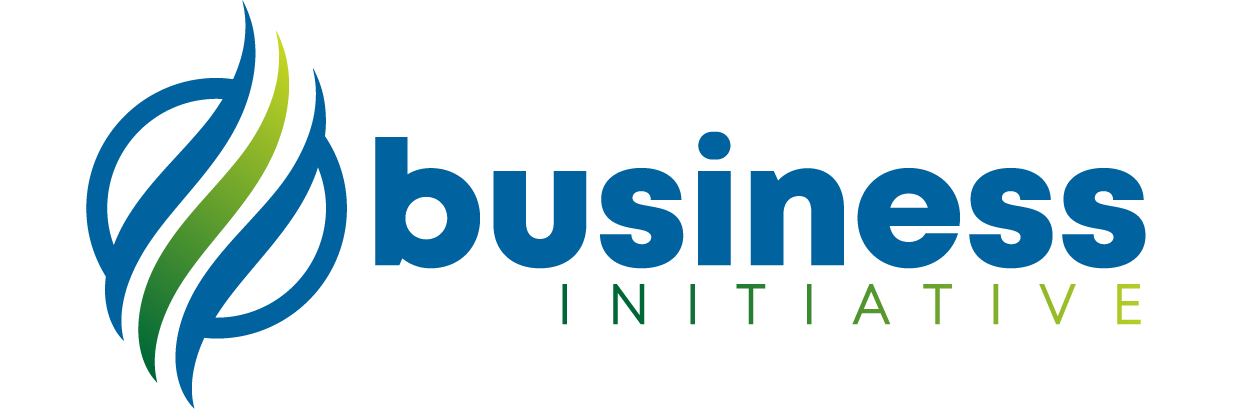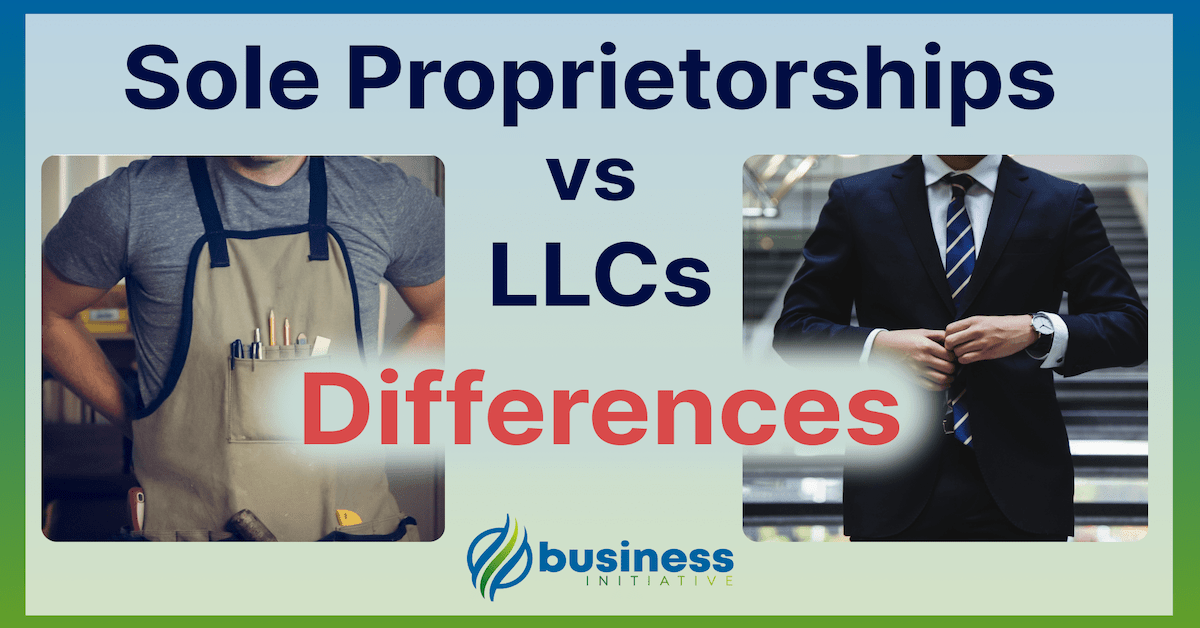Embarking on a business venture requires choosing the right structure.
While Limited Liability Companies (LLCs) and Sole Proprietorships are common choices, they offer distinct advantages and limitations.
 Key Takeaways
Key Takeaways
- Legal Protection: LLCs provide a safety net by separating personal assets from business liabilities, while Sole Proprietorships offer no such protection.
- Flexibility in Ownership: LLCs allow for multiple members and easier expansion, whereas Sole Proprietorships are limited to one owner.
- Tax Advantages: Both structures benefit from Pass-Through Taxation, but LLCs offer more flexibility in managing tax liabilities.
- Operational Costs: Sole Proprietorships have minimal start-up costs and fewer regulatory hurdles, making them more budget-friendly for small-scale operations.
- Business Continuity: LLCs support long-term planning and legacy building with their stability and transferability, while Sole Proprietorships are dependent on the owner's active participation.
This article explores these differences in depth to help entrepreneurs make informed decisions.
Differences – A Detailed Comparison
1. Legal Status and Protection
- LLC:
Provides a safety net by separating business liabilities from personal assets.
This means, in case of legal issues or debts, your personal property, like your home or car, remains protected.
It’s a shield that ensures the owner’s personal financial security, making it a preferred choice for businesses with higher risk.
- Sole Proprietorship:
Offers no such buffer.
If the business incurs debt or faces legal action, personal assets are at risk.
This structure is akin to walking a tightrope without a safety net, suitable for low-risk ventures but risky for others.
2. Ownership Structure
- LLC:
Versatile in ownership, LLCs can include multiple members who can be individuals, partnerships, or even other corporations.
This flexibility supports growth and investment opportunities, making it easier to expand and bring in new partners or investors.
- Sole Proprietorship:
Ideal for individual entrepreneurs, this structure is strictly one-person-centric.
While it offers simplicity and direct control, it limits expansion opportunities and makes raising capital more challenging.
3. Funding and Operational Costs
- LLC:
Involves initial setup costs, like registration fees, which vary by state, and ongoing expenses like annual report fees or franchise taxes.
These costs, while manageable, require budgeting and financial planning.
- Sole Proprietorship:
Known for its ease of entry, with minimal start-up costs and fewer regulatory hurdles.
It’s a pocket-friendly option for those testing business ideas or operating on a small scale.
4. Taxation
- Although both enjoy Pass-Through Taxation, LLCs allow for more flexibility in how profits are distributed and taxed, separating personal and business finances.
This can lead to potential tax benefits, depending on your circumstances.
- Sole Proprietorships, on the other hand, blend business and personal income, simplifying tax filing but offering less flexibility in managing tax liabilities.
5. Control
- Sole Proprietorship:
Total control rests with the sole owner, making decision-making swift and unencumbered by others’ opinions or interests.
This autonomy is a double-edged sword, offering freedom but also sole responsibility.
- LLC:
More complex, especially with multiple members, as decision-making is often shared.
The Operating Agreement is crucial, outlining each member’s role and stake, potentially leading to more democratic but slower decision-making processes.
6. Business Continuity
- LLC:
Offers longevity and stability, even with changes in membership.
It’s a structure that supports business continuity and transferability, an advantage for long-term planning and legacy building.
- Sole Proprietorship:
Tightly linked to the owner’s involvement.
Its existence is dependent on the owner’s active participation, making transfer or continuation beyond the owner’s tenure more challenging.
7. Regulatory Compliance
- LLC:
Demands more in terms of compliance, including regular filings and adherence to state-specific rules.
This complexity ensures a structured operation but requires diligence and possible legal support.
- Sole Proprietorship:
Simpler, with less red tape, focusing mainly on obtaining necessary permits and licenses.
It’s a less burdensome route, ideal for those seeking simplicity in operation.
➤ MORE: Why are Sole Proprietorships preferred by budding entrepreneurs?
Similarities – Shared Aspects
Both structures have commonalities, like Pass-Through Taxation and similar government oversight levels.
They also share exposure to market risks and the ability to hire professionals to enhance business operations.
1. Taxation
- Pass-Through Taxation:
Both LLCs and Sole Proprietorships benefit from Pass-Through Taxation, simplifying the tax process.
This means profits from the business are reported on the owner’s personal income tax returns, avoiding corporate tax rates.
This common feature is especially appealing for small businesses looking to minimize their tax burden.
2. Government Regulation
- Similar Oversight:
Regardless of whether you choose an LLC or a Sole Proprietorship, certain government regulations apply equally.
This includes compliance with industry-specific requirements such as obtaining necessary permits and licenses.
Both structures are subject to similar levels of government scrutiny, ensuring a level playing field in regulatory compliance.
3. Business Risks
- Exposure to Market Dynamics:
Both business types navigate the same turbulent waters of market risks.
Factors like changing tax laws, fluctuating supply prices, shifts in demand, and evolving market trends impact LLCs and Sole Proprietorships alike.
Entrepreneurs in either structure must be adept at adapting to these changes to remain competitive.
4. Professional Assistance
- Access to Expertise:
Owners of both LLCs and Sole Proprietorships can hire employees, private contractors, and engage with professional advisors like accountants and financial consultants.
This access to external expertise allows business owners to optimize operations, streamline financial management, and enhance overall business performance.
5. Business Operations and Management
- Operational Flexibility:
In both structures, the owner(s) have significant freedom in managing and operating their business.
This includes the ability to make independent decisions about hiring, marketing strategies, and business development.
This autonomy allows for tailored approaches to business growth and management.
6. Professional Image and Marketing
- Branding Opportunities:
Both structures allow for the creation of a distinct business identity.
Sole Proprietors can use a ‘Doing Business As’ (DBA) name to market their business, while LLCs operate under their registered business name.
This flexibility in naming and branding is crucial for marketing and establishing a professional image in the marketplace.
Important Things to Consider
While the differences between LLCs and Sole Proprietorships are significant, their similarities also play a crucial role in the decision-making process for entrepreneurs.
Understanding both aspects is key to choosing the right structure for your business needs.
Choose a business structure that aligns with your vision and goals, both short-term and long-term.
In Summary…
Choosing the right business structure is a critical decision for entrepreneurs.
Limited Liability Companies (LLCs) and Sole Proprietorships offer distinct advantages and limitations that can significantly impact the success and sustainability of a business.
Entrepreneurs can leverage this information to choose a business structure that aligns with their risk tolerance, growth aspirations, and financial goals.
By understanding the implications of each structure, business owners can make informed decisions that support their long-term success.
What You Gain:
By choosing the right business structure, you gain:
-
Protection: Shield your personal assets from business liabilities (with an LLC).
-
Growth Potential: Open doors to expansion and investment opportunities (with an LLC).
-
Cost Efficiency: Minimize startup costs and regulatory hurdles (with a Sole Proprietorship).
-
Tax Benefits: Optimize your tax situation based on your business needs.
-
Control: Maintain autonomy in decision-making (with a Sole Proprietorship) or share responsibilities (with an LLC).
-
Continuity: Ensure the longevity and stability of your business (with an LLC).
-
Simplicity: Enjoy a straightforward operational structure (with a Sole Proprietorship).
Ready to embark on your entrepreneurial journey with confidence?
Schedule a consultation call with our business initiative experts to explore the best structure for your unique vision.
Let us guide you toward a prosperous and secure business future.
Don’t hesitate, contact us now through our contact form and take the first step toward success.
Stay informed and connected by subscribing to our Business Initiative Newsletter and following us on X (Twitter) for the latest insights and updates in the world of entrepreneurship.


